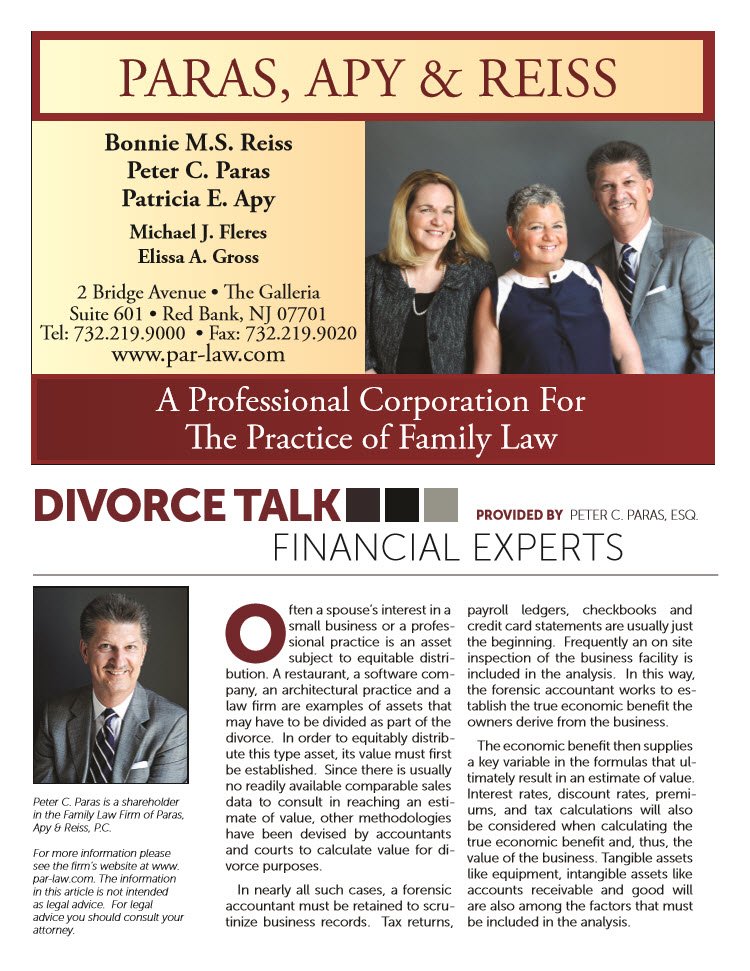Often a spouse’s interest in a small business or a professional practice is an asset subject to equitable distribution. A restaurant, a software company, an architectural practice and a law firm are examples of assets that may have to be divided as part of the divorce. In order to equitably distribute this type asset, its value must first be established. Since there is usually no readily available comparable sales data to consult in reaching an estimate of value, other methodologies have been devised by accountants and courts to calculate value for divorce purposes.
In nearly all such cases, a forensic accountant must be retained to scrutinize business records. Tax returns, payroll ledgers, checkbooks and credit card statements are usually just the beginning. Frequently an on site inspection of the business facility is included in the analysis. In this way, the forensic accountant works to establish the true economic benefit the owners derive from the business.
The economic benefit then supplies a key variable in the formulas that ultimately result in an estimate of value. Interest rates, discount rates, premiums, and tax calculations will also be considered when calculating the true economic benefit and, thus, the value of the business. Tangible assets like equipment, intangible assets like accounts receivable and good will are also among the factors that must be included in the analysis.

